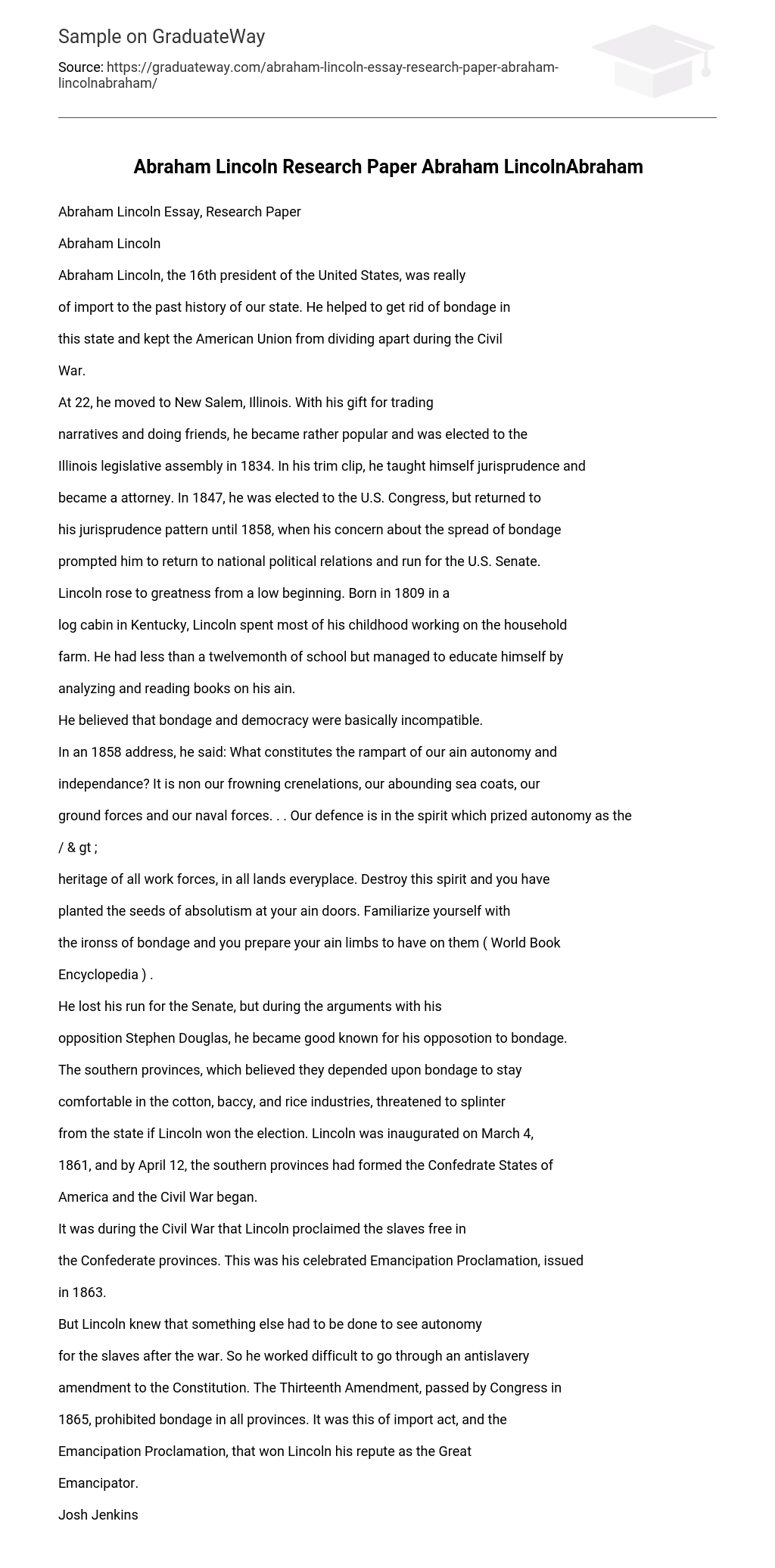Abraham Lincoln, the 16th president of the United States, was really of import to the past history of our state. He helped to get rid of bondage in this state and kept the American Union from dividing apart during the Civil War.
At 22, he moved to New Salem, Illinois. With his gift for trading narratives and doing friends, he became rather popular and was elected to the Illinois legislative assembly in 1834. In his trim clip, he taught himself jurisprudence and became a attorney. In 1847, he was elected to the U.S. Congress, but returned to his jurisprudence pattern until 1858, when his concern about the spread of bondage prompted him to return to national political relations and run for the U.S. Senate.
Lincoln rose to greatness from a low beginning. Born in 1809 in a log cabin in Kentucky, Lincoln spent most of his childhood working on the household farm. He had less than a twelvemonth of school but managed to educate himself by analyzing and reading books on his ain. He believed that bondage and democracy were basically incompatible.
In an 1858 address, he said: What constitutes the rampart of our ain autonomy and independance? It is non our frowning crenelations, our abounding sea coats, our ground forces and our naval forces. Our defence is in the spirit which prized autonomy as the / & gt ; heritage of all work forces, in all lands everyplace. Destroy this spirit and you have planted the seeds of absolutism at your ain doors. Familiarize yourself with the ironss of bondage and you prepare your ain limbs to have on them ( World Book Encyclopedia ) . He lost his run for the Senate, but during the arguments with his opposition Stephen Douglas, he became good known for his opposotion to bondage.
The southern provinces, which believed they depended upon bondage to stay comfortable in the cotton, baccy, and rice industries, threatened to splinter from the state if Lincoln won the election. Lincoln was inaugurated on March 4, 1861, and by April 12, the southern provinces had formed the Confedrate States of America and the Civil War began. It was during the Civil War that Lincoln proclaimed the slaves free in the Confederate provinces. This was his celebrated Emancipation Proclamation, issued in 1863. But Lincoln knew that something else had to be done to see autonomy for the slaves after the war.
So he worked difficult to go through an antislavery amendment to the Constitution. The Thirteenth Amendment, passed by Congress in 1865, prohibited bondage in all provinces. It was this of import act, and the Emancipation Proclamation, that won Lincoln his repute as the Great Emancipator.





